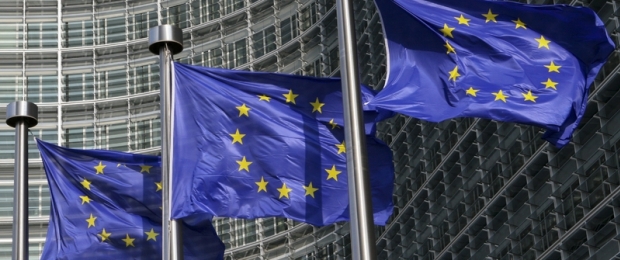
Europe - Did we make the right choice?
Though often criticised as being undemocratic, popular referenda have been pivotal in the history of the European Union. Recent events in France and Netherlands aside, perhaps none more so than the 1975 poll confirming Britain's membership of the then European Economic Community. Thirty years on, Britain is taking the lead in Europe, overwriting the short-sighted economic and strategic mistake of not becoming a founding member of the EEC in 1957.
For centuries, Britain and the British have fundamentally shaped Europe through economics, diplomacy and, sometimes unavoidably, war. This rich historical legacy was put at risk in the aftermath of the Second World War when - despite the urgings of Winston Churchill - Britain turned its face away from Europe, wary and weary of continental politics. This country looked inward and backward; neither its influence or affluence grew but rather diminished. An interruption in British history that was memorably defined by Hugo Young's 'This Blessed Plot' as “fifty years in which Britain struggled to reconcile the past she could not forget with the future she could not avoid.'
By contrast, Britain's re-emergence as a forward-looking, prosperous nation with invigorated international influence has gone hand in hand with its rapprochement with 'the mainland' and its support for European cooperation. The British have returned to shape Europe in the guise of Roy Jenkins, Lord Cockfield, (Advocate General) Francis Jacobs, Chris Patten, Lord Kerr and others. Even Margaret Thatcher deserves her place here, for bringing Britain deeper into Europe than any previous British leader with her support for the Singe Market Programme.
And Europe, first through the EEC and then the EU, has delivered for Britain. The single market of over 400 million consumers has increased British GDP, our access to it has attracted crucial foreign investment and we benefit greatly from the single European voice in world trade. British consumers benefit from cheaper energy, airfares, phone calls and safer food as well as important protections for worker equality, health and safety, intellectual property and the environment. Freedom of movement has meant that it is now possible to move and reside freely throughout the EU, a freedom gratefully exploited by millions of student exchanges and property deals. This is a far cry from the concerns of the anti-European camp in 1975, terrorising Britons that the price of their daily bread would rocket.
Neither could the isolationists thirty years ago have foreseen a globalised world where the challenges posed by failing states, immigration, terrorism, organised crime, drugs and human trafficking now demand common, sometimes supranational answers. No thanks to them, Britain was there to take the initiative along with France at St-Malo in 1998 to launch a new era in European cooperation providing for the creation of a European military force that could, with the support of all EU members, prevent further genocide on European borders or in Africa. This peacekeeping capability has already spared civilian populations much suffering by intervening in Macedonia and the Democratic Republic of Congo and will continue to do so. In addition, Britain is now insisting upon - as opposed to shying away from - EU measures to tackle security threats that have no respect for national borders or internal boundaries.
Who wants to go back on any of this? Who thinks it would have been achievable without European integration? If Britain had voted no in 1975, it would have lost out economically and politically. It would also have had to accept the fate of Norway or Switzerland which, although not members, voluntarily implement the majority of EU legislation without any say over its drafting. To the British mindset, this is simply not practical. Britons have realised that after 30 years in Europe, being European is no threat to being British. One is a regional identity, the other a national one. For example France, Germany and Italy have been enthusiastic for a more political union for over 50 years. But they have yet to lose one iota of their strong sense of national identity or separateness. Visit any one of these countries to confirm this.
Unfortunately, the fallout from the recent French and Dutch referenda on the EU constitutional treaty will probably deprive the British people of a long overdue second popular debate on Europe. But such a public discussion is urgently needed in order to be done with the shrill hostility and myth surrounding the EU here, exploited tirelessly by politicians and a frequently hysterical media. The Blair government came to power as the first with a manifesto promise to challenge traditionally Euro-sceptic attitudes in Britain. In its summary failure to do so, it has neglected to exorcise a spectre that will frequently return to haunt British politics, perhaps at a time when the political classes are incapable of decisive action. This is what has happened in France and Holland after all.
The EU is changing. In the aftermath of popular votes on the constitutional treaty, the Union is in danger of becoming confused and inward looking. After a difficult interregnum with its European partners, Britain now has the opportunity – as it takes up its EU presidency at the end of June - to lead from the front. Europe urgently needs to move forward, in particular on economic reform and in securing a stronger voice on the world stage. There are opportunities in every crisis. This time Britain will not make the same mistake twice. This time it will be there from the beginning.
